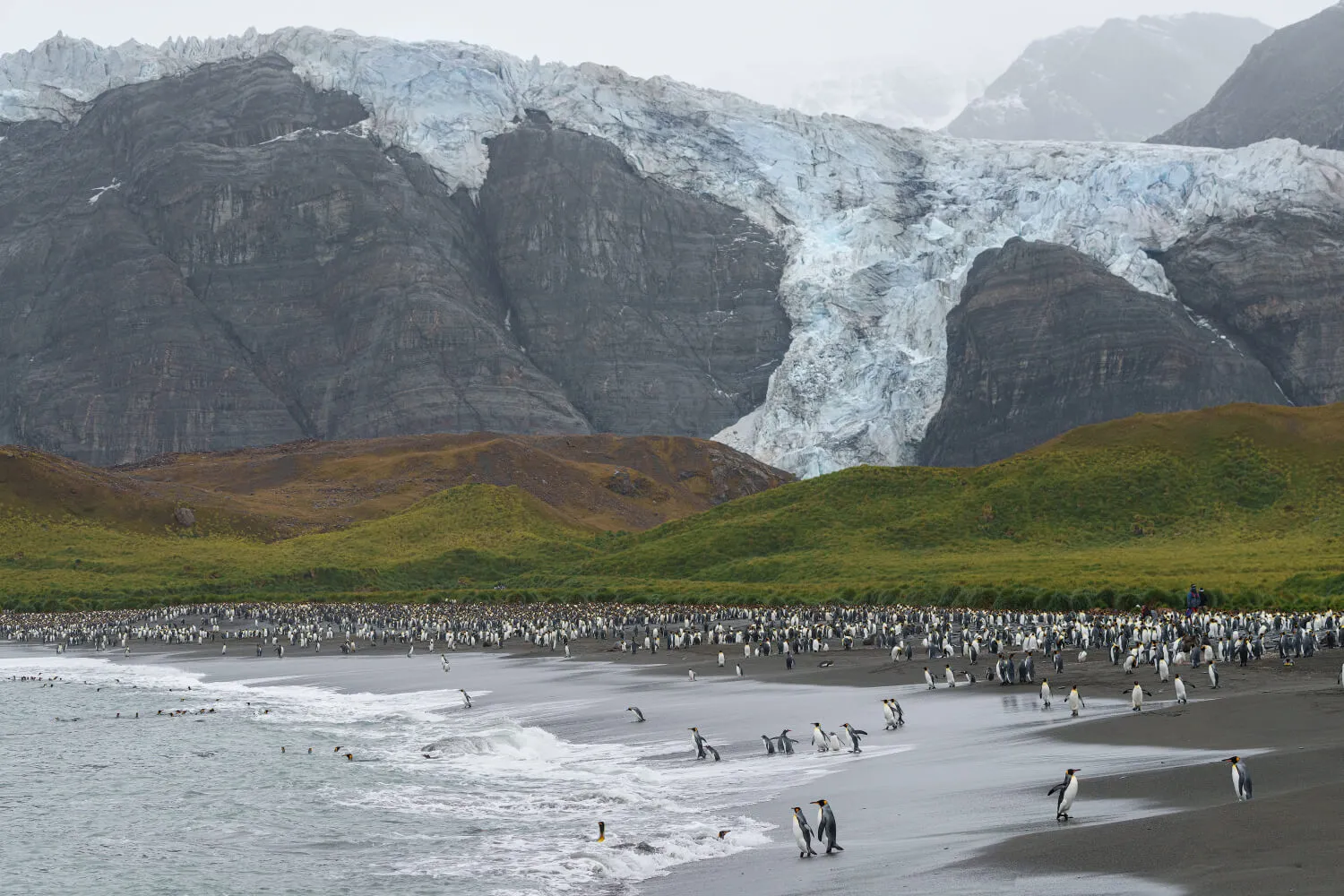

We hope you enjoy this brief dose of polar history, the third in our Famous Antarctic Explorers Series!Captain Robert Falcon Scott, a British Royal Navy officer, was born in Devon, England in 1868. He is best known for his two Antarctic expeditions: the first was the Discovery Expedition which took place from 1901-1904; the second was the Terra Nova Expedition, from 1910-1913.The First ExpeditionThe Discovery Expedition was originally known as the British National Antarctic Expedition, and Scott was its commander. Discovery set sail for Antarctica on August 6, 1901.Scott, along with members of his team, Ernest Shackleton, and Edward Wilson, walked the furthest south at the time – 850 km or 530 miles from the South Pole. The next year, Scott explored the Polar Plateau, resulting in crucial geological and biological discoveries.The Discovery Expedition is best embodied by the photo of the ship stuck in ice that required the assistance of two relief ships to free her from Antarctica’s grasps. A foreshadowing of sorts for Captain Scott.Although Scott and Shackleton were both a part of the Discovery Expedition, it was widely believed that they did not get along. Both ambitious and adventurous men by nature, Shackleton announced his intentions to go back to Antarctica – where Discovery had set up base – and push further than before. However, because Scott first landed, the general consensus was that it would be for Scott to return and continue the exploration further. When Shackleton later was unable to land on the eastern part of the continent as promised, many took that as a misappropriation on Shackleton’s behalf.The Second ExpeditionScott’s primary purpose for his second expedition, the Terra Nova Expedition, was to “reach the South Pole, and to secure for the British Empire the honor of this achievement.” (From the book, ‘Scott of the Antarctic: A Life of Courage, and Tragedy in the Extreme South’ by David Crane, 2005.)Although the battle with Shackleton had somewhat been quashed, a new competition to be the first to the South Pole would ensue between Scott and Norwegian explorer, Roald Amundsen. Amundsen had already departed for Antarctica and was planning on being the first to the South Pole as well. Little did Scott know, Amundsen would beat him to the Pole – by five whole weeks.On January 17, 1912, Scott arrived at the South Pole with his team of five men, and on January 19, 1912, they would begin the 1,300-km or 800-mile trek back to the ship. After missing a meet-up with colleagues and dogs at the pre-determined location, the return journey proceeded with difficulty. Scott and the remaining two men set up their final camp spot on March 19, two months after their return journey home began. The next day, a terrible blizzard stopped them from continuing on. Scott’s final entry in his journal was dated March 29 and he is assumed to have passed that day or the next.The final words in Scott’s journal can be an inspiration to us all to take more risks, knowing that they are just that – risks.“We took risks, we knew we took them; things have come out against us, and therefore we have no cause for complaint, but bow to the will of Providence, determined still to do our best to the last.”- From Scott’s Message to the Public

Start planning your next big adventure today! Review our limited-time promotions.
Related Articles
Experience the Extraordinary
From dramatic landscapes to close wildlife encounters, every journey to the White Continent is unique. Let's start planning yours together.











.avif)
_INT0328.avif)




